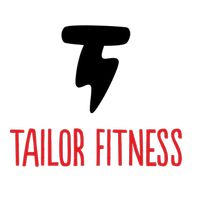Maximizing Your Fitness Journey with High-Protein Foods
The Importance of Protein and How to Incorporate it into your Nutrition Plan
Introduction:
In the pursuit of a healthier lifestyle and a fitter physique, we often focus on exercise routines and neglect the significance of proper nutrition. However, what we fuel our bodies with plays a crucial role in achieving our fitness goals. Among the key components of a balanced diet, protein stands out as the building block for muscle growth and repair. In this blog, we'll delve into the importance of high-protein foods in your fitness regimen and explore some delicious and nutritious options to incorporate into your meals.
The Role of Protein in Fitness:
Protein is not only essential for muscle growth but also crucial for various bodily functions. When you engage in physical activity, especially strength training or endurance exercises, your muscles undergo stress and micro-tears. Protein aids in repairing these muscles, making them stronger and more resilient. Additionally, protein plays a vital role in satiety, helping you feel full and satisfied, which can prevent overeating and support weight management efforts.
Benefits of High-Protein Foods:
1. Muscle Growth and Repair: Consuming adequate protein ensures that your muscles have the necessary building blocks for growth and repair, facilitating recovery after intense workouts.
2. Increased Metabolism: Protein has a higher thermic effect compared to carbohydrates and fats, meaning your body expends more energy digesting and metabolizing protein-rich foods, potentially aiding in weight management.
3. Satiety and Appetite Control: Including protein in your meals and snacks helps keep you feeling full for longer periods, reducing cravings and the likelihood of snacking on unhealthy foods.
4. Maintenance of Lean Body Mass: When combined with regular exercise, a high-protein diet can help preserve lean body mass while promoting fat loss, leading to a more toned physique.
5. Nutrient Density: Many high-protein foods are also rich in essential vitamins, minerals, and other nutrients, contributing to overall health and well-being.
Top High-Protein Foods to Incorporate:
1. Lean Meats: Chicken breast, turkey, lean beef, pork loin, and game meats are excellent sources of protein with relatively low fat content.
2. Fish and Seafood: Salmon, tuna, trout, shrimp, and other seafood options are not only packed with protein but also rich in omega-3 fatty acids, which have numerous health benefits.
3. Eggs: Eggs are a versatile and affordable protein source, containing all nine essential amino acids.
4. Dairy Products: Greek yogurt, cottage cheese, and low-fat milk are excellent sources of protein, calcium, and other essential nutrients.
5. Plant-Based Proteins: Beans, lentils, chickpeas, tofu, tempeh, edamame, quinoa, and nuts/seeds are nutritious plant-based alternatives for those following a vegetarian or vegan diet.
Incorporating High-Protein Foods into Your Diet:
- Start your day with a protein-rich breakfast, such as eggs with spinach and whole-grain toast or a smoothie with protein powder, Greek yogurt, and fruits.
- Include a source of protein in each meal and snack to help maintain steady energy levels and promote muscle recovery throughout the day.
- Experiment with different cooking methods and recipes to keep meals exciting and flavorful. Try grilling, baking, sautéing, or slow-cooking your protein sources with herbs, spices, and healthy sauces.
- Don't forget about post-workout nutrition! Consuming a combination of protein and carbohydrates within 30 minutes to an hour after exercise can enhance muscle recovery and replenish glycogen stores.
Conclusion:
Incorporating high-protein foods into your diet is a simple yet effective way to support your fitness journey and optimize your health. Whether you're aiming to build muscle, lose weight, or simply improve your overall well-being, prioritizing protein-rich foods can help you reach your goals faster and feel your best. Remember to pair your protein intake with regular exercise and a balanced diet rich in fruits, vegetables, whole grains, and healthy fats for optimal results. Cheers to a stronger, healthier you!
Unlock Your Potential



